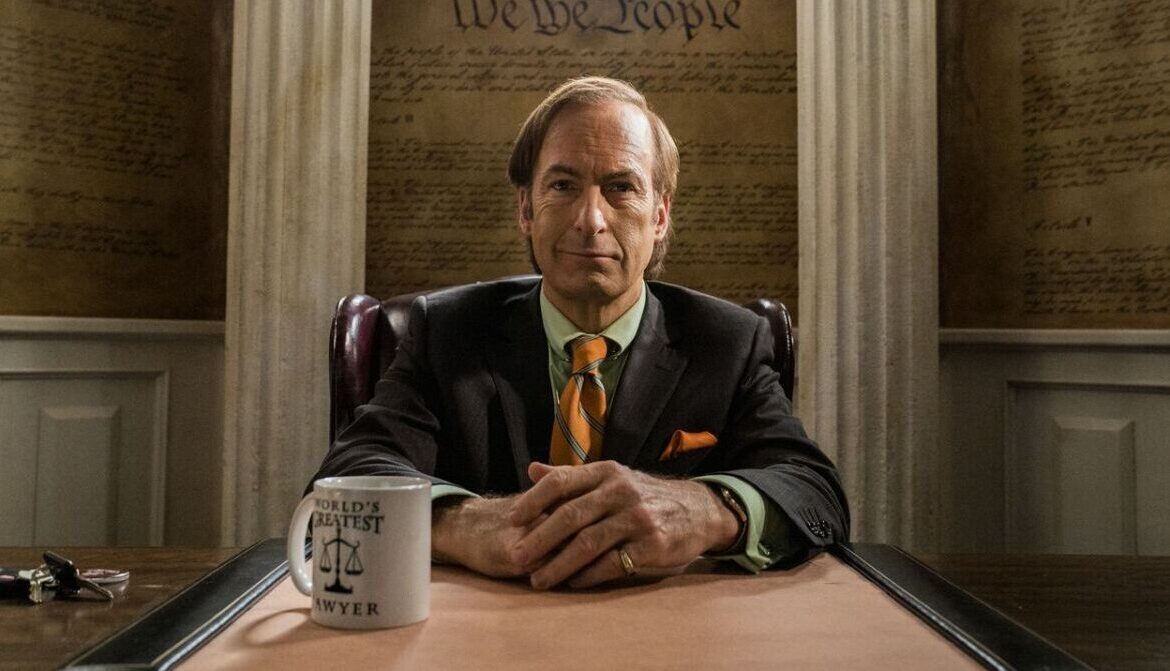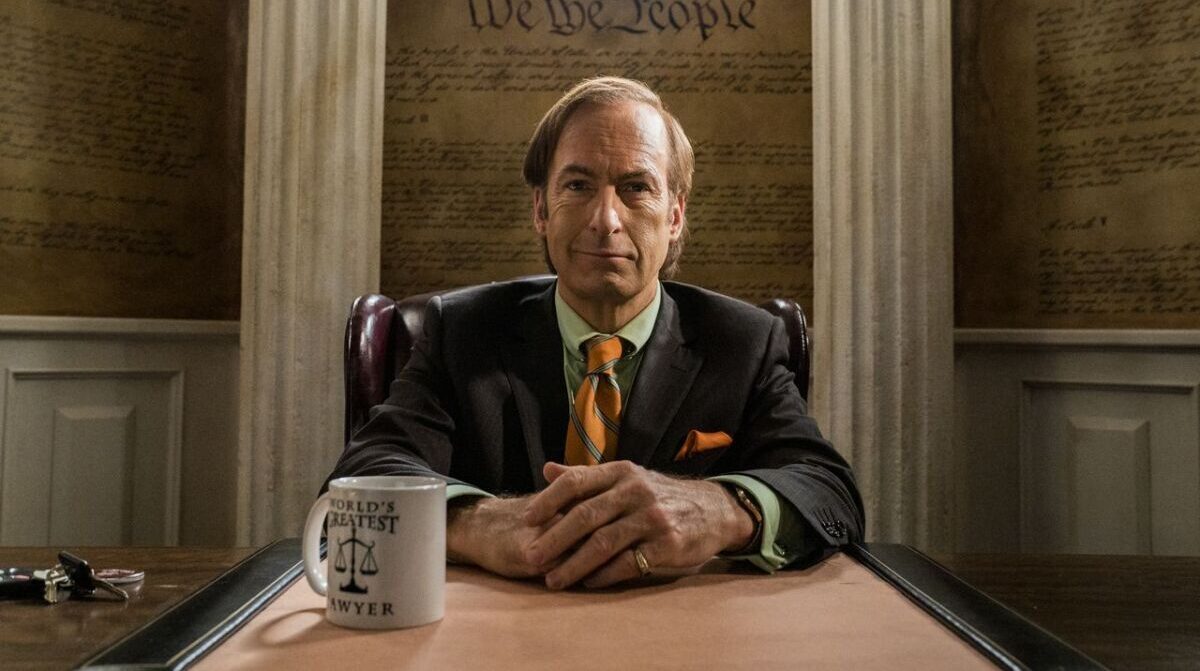It still amazes me that Better Call Saul was originally sketched out as a lighter spinoff, a goofy half-hour comedy where each week Saul would have a new client and figure out some amusingly amoral way to get them off scot-free. In the event it’s turned out to be a drama just as enthralling as its predecessor Breaking Bad, if not more so – I’ve seen it called the The Godfather Part II of television, High praise indeed, but definitely merited.
My thoughts on the previous season made much of it effectively being three stories intertwined into one. This had its rough patches, especially when they seemed like utterly unconnected slices of Albuquerque life, but here it all pays off because each of the plot strands do themselves all pay off. The conclusions may not be happy endings, but my God are they endings.
For one of these main strands, we already knew where it all finished; the other was up in the air. But as for the third, while we always knew what would ultimately become of Saul, the show had from the start been playing about with an ostentatiously black-and-white post-Breaking Bad timeline. We always knew, or at least really hoped, that we’d be seeing a bit of a where-are-they-now?
Sticking the landing is itself worthy of praise, given all the similarly A-list high-octane dramas that completely bungled this. First on that list is obviously Game Of Thrones’s infamous self-destruction. Ozark, which was very clearly aping the Breaking Badiverse in places, fell apart badly as it came to a close. Even The Wire, TV’s own great American novel, was starting to show the strain by the end.
The common theme here can only be television as a longer-form work. No serialisation, no adventures-of-the-week (as The Adventures Of Saul Goodman JD might well have been), now the kind of grand sprawling plots which were incredibly niche not too long ago have become the standard. Hence why it manages to squeeze three stories – at the very least two-and-a-half – into a one-story-sized package.
Better Call Saul always had a leg up on the competition in this regard, since it already had a good 62 hours of lore to play with from minute one. But this is a double-edged sword. To be sure, there’s already a huge amount of depth to any returning character, but it also means, as I’ve already touched upon, that we know where a lot of them end up (see: Mike, Gus, Hector, and the rest of Albuquerque’s lovable professional criminals).
As this goes, I have to draw comparison to El Camino, the rather shaky sequel film, which, while a sequel, was very eager to flash back to the Breaking Bad timeline and wheel out the old faces, most obviously Jonathan Banks and Bryan Cranston. Better Call Saul, too, has been promiscuously gleeful about this from the start, but here it feels less like something designed to make the studio audience clap.
When Better Call Saul gives us the old faces, they never seem like a celebrity guest star. There’s a bit of ‘remember when’ to it, but this is a remembrance of things past, thinking back upon how we got from there to here.
The real brilliance of this final season of Better Call Saul is in finally reconciling the cartoon ambulance-chaser of Breaking Bad with the underdog-y and infinitely more rounded version of the character Better Call Saul presented us. ‘Rounded’ may even be underselling it for a man who goes through at least three distinct personae. Jimmy McGill finally grows to fit the mask of Saul Goodman, the very thing we’d all wanted from the start – and it turns to ashes in our mouths as it happens.
And let it go as testament to the skill of the creators that they were able to pull off this transformation on the hoof. When they first came up with Saul and plopped him before us, as he casually leched over his secretary and blithely suggested killing a man, they could never have possibly imagined they’d one day have to make the character not simply likable but genuinely sympathetic.
This is not the first time they’ve had to play things by ear. When Breaking Bad introduced Gus, you could see the show metamorphosing as they realised exactly what they had on their hands, and now Giancarlo Esposito will be playing amiable, well-groomed evil men until someone physically forces him to stop. But Bob Odenkirk has found himself opening up layers of Saul we’d never even have suspected could exist. The days before he was even Saul were just the start.
Speaking of fleshing the character out, does Rhea Seehorn’s Kim ever quite rise to co-lead? Perhaps not, but it’s a very close second – and she’s head and shoulders over Better Call Saul’s other putative leads, behind only the man himself. It’s far from slushy, but Kim and Jimmy are, very much, a romance. So crucially, Seehorn is complementing Odenkirk’s performance, rather than battling him for screentime (as our endless obsession with the Albuquerque underworld has been doing from the start).
And Kim is another clear example of the creators improvising wildly and turning out pure gold. Even Lalo, that scene-stealing highlight, was based in a little mention in Breaking Bad – and was ultimately window-dressing. Kim came from nowhere and ended up as an indispensable part of the A-plot.
On a fundamental level, Better Call Saul is about as good as television can possibly be, while being hemmed in by the fact of being a prequel (for instance, Odenkirk and Esposito could never share a scene without throwing continuity out the window). So perhaps it’s appropriate that the real highlights were those parts of the story which the original never even hinted at. That hemming-in requires creativity, in the same sort of way that pressure creates diamonds.
READ MORE: Better Call Saul: Who’s Really The Villain, Anyway?
Some of the coverage you find on Cultured Vultures contains affiliate links, which provide us with small commissions based on purchases made from visiting our site.


